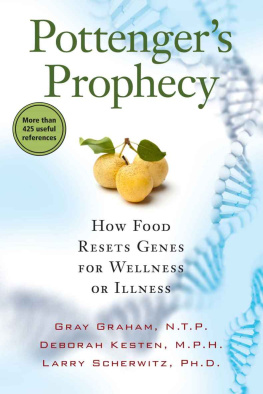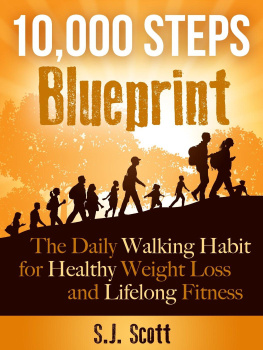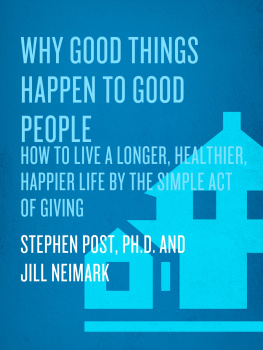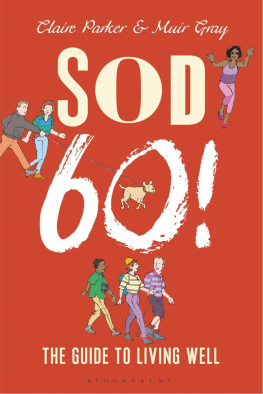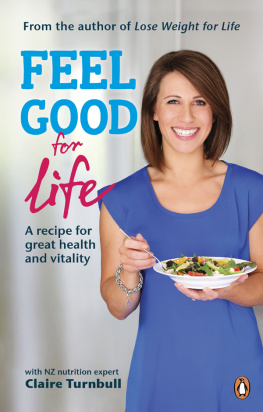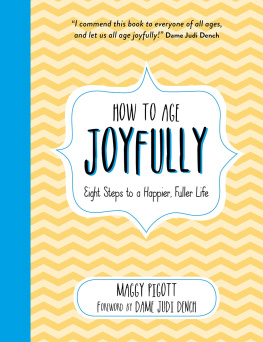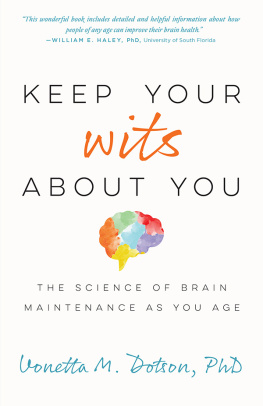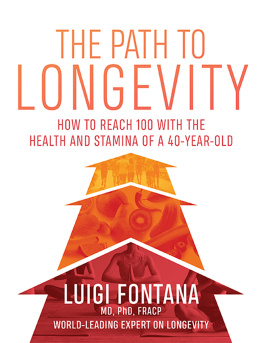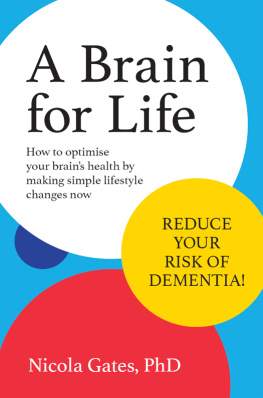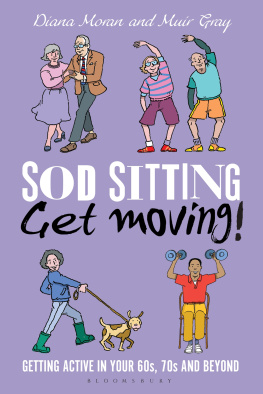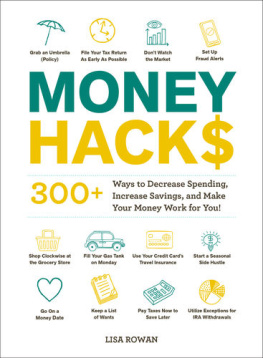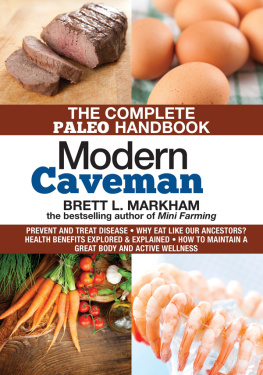
Age UK wants everyone to love later life and this highly readable book, which draws on the latest science, helps plot the course for how we can achieve it. Decline is not inevitable but the older we get, the greater the need for positive action if were to stay fit and well. Sod Seventy! explains the how as well as the why of this and as such this book deserves to be essential reading.
Age UK, 2014
Disclaimer: The information contained in this book is a) correct, to the best of the authors and publishers knowledge, at the date of publication; and b) published for general information purposes only and does not constitute medical or other professional advice on any subject matter. Please consult your doctor before beginning an exercise programme or otherwise increasing your activity level. In no way are there any expressed or implied representations by the author or publisher that the information contained in this book constitutes or is a substitute for medical advice or guidance by a qualified doctor or medical professional regarding specific medical complaints, issues, conditions or diagnoses. The author and publisher employees do not accept any responsibility for any loss, which may arise from reliance on information contained in this book.
Bloomsbury Sport
An imprint of Bloomsbury Publishing Plc
This electronic edition published in 2014 by Bloomsbury Publishing Plc
| 50 Bedford Square | 1385 Broadway |
| London | New York |
| WC1B 3DP | NY 10018 |
| UK | USA |
www.bloomsbury.com
Bloomsbury is a trademark of Bloomsbury Publishing Plc
First published 2015
Muir Gray, 2015
Illustrations David Mostyn, 2015
Muir Gray has asserted his right under the Copyright, Designs and Patents Act, 1988, to be identified as Author of this work.
All rights reserved
You may not copy, distribute, transmit, reproduce or otherwise make available this publication (or any part of it) in any form, or by any means (including without limitation electronic, digital, optical, mechanical, photocopying, printing, recording or otherwise), without the prior written permission of the publisher. Any person who does any unauthorised act in relation to this publication may be liable to criminal prosecution and civil claims for damages.
No responsibility for loss caused to any individual or organization acting on or refraining from action as a result of the material in this publication can be accepted by Bloomsbury or the author.
British Library Cataloguing-in-Publication Data
A catalogue record for this book is available from the British Library.
Library of Congress Cataloguing-in-Publication data has been applied for.
ISBN: HB: 978-1-4729-1897-0
ePDF: 978-1-4729-1899-4
ePub: 978-1-4729-1898-7
Bloomsbury Publishing Plc makes every effort to ensure that the papers used in the manufacture of our books are natural, recyclable products made from wood grown in well-managed forests. Our manufacturing processes conform to the environmental regulations of the country of origin.
To find out more about our authors and books visit www.bloomsbury.com. Here you will find extracts, author interviews, details of forthcoming events and the option to sign up for our newsletters.
CONTENTS
FOREWORD
The message of this book is that prevention is as relevant at seventy years old as at twenty. We now know that we can postpone many problems that we have assumed to be due to ageing but which well-designed research now proves to be due to loss of fitness, preventable disease and loss of morale. Your health in older age can be improved and this book gives you the recipe for good health in your seventies, and better health in the decades to follow.
Professor Dame Sally Davies
Chief Medical Officer for England
ACKNOWLEDGEMENTS
I would like to thank the following people who helped improve the content of this book. A number of clinicians commented on the content but full responsibility rests with me. Simon Costain, Guy Duckworth, Diane Stevens, Sally Hope, Claire Parker, Bernard Prendergast, and Howard Williams were the experienced clinicians.
In the publishing team Jackie Rosenthal, John Churchill, Sarah Cole, and Charlotte Croft created a coherent whole with style from the fragments of text the author produced.
Rosemary Lees and Sarah Moore provided excellent support, as always, and the wonderful artist David Mostyn was never stumped, transforming vague ideas into vibrant illustrations with incredible speed.

Age is just a number
Ageing, growing old, becoming a senior citizen or a retiree all these terms are commonly used but mean different things to different people. Some people simply define others as being old if they are older than they are, whether they are 20 or 80!
So lets not get lost in the debate about what these terms mean and whether or not you like to be called old, a senior citizen, an OAP or an elder. If you are reading this book, you are probably 70 or older. Your age, in numbers, cannot be denied, but your seventieth birthday, or any birthday in your seventies, should not be a cause for gloom. It is a cause for celebration and for taking action to cope with what cannot be denied namely the effects of the ageing process, which has in fact been working away since you were 30. However, ageing is not the cause of problems in your seventies unless you think it is in control of your health and wellbeing. You can seize control by:
reducing your risk of developing disease
becoming fitter, even if you already have one, or more, long term conditions
adopting a positive attitude to life, its problems and opportunities.
This book is designed to help you achieve all three of these goals.
I recently attended the one hundredth birthday party of a friend. The birthday boy gave a wonderful speech saying, among other things, that a few months earlier he had flown for the first time to Israel, together with his companion, and fulfilled a long-term ambition to swim in the Dead Sea. And his choice of present? An iPad. It is exceptional to be so lively at 100, but if you reach 90 and are relatively free from the effects of disease, you will be able to live on your own, get about by public transport, maybe even still drive a car, and take a lively interest in current affairs. At the age of 90, the pianist Menahem Pressler played Mozarts piano concerto number 23 to rapturous applause in Oxfords Sheldonian Theatre and, for an encore, a Schubert moment musicale no score, just memory and perfect co-ordination.
So how is it that we all know old 60-year-olds and sprightly 80-year-olds people who seem old beyond their years and others who were convinced have a Dorian Gray style portrait in the attic? There is, of course, no denying that the ageing process exists and that there are only two phases in life:
growing and developing
ageing.
The turning point varies from person to person, but it can start in our teens, although for most of us it starts in the late twenties. The typical shape of the curve is shown overleaf.

The ageing curve
Beware the fitness gap






